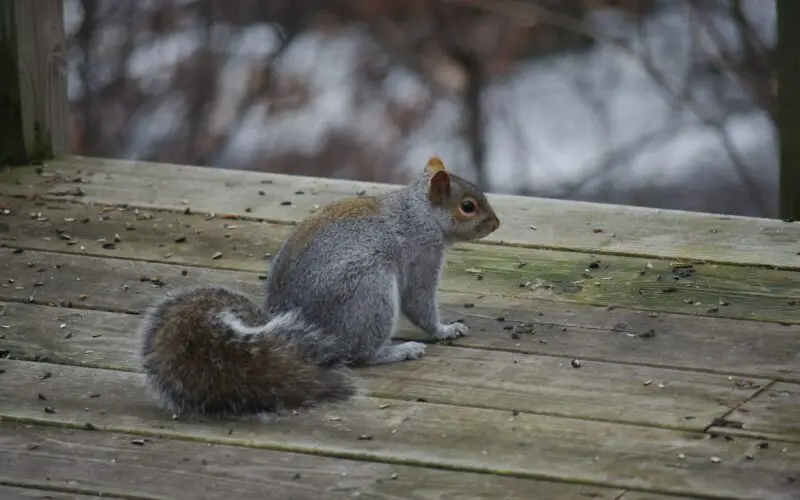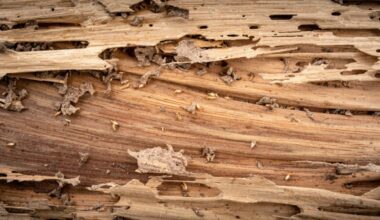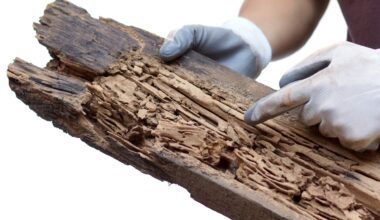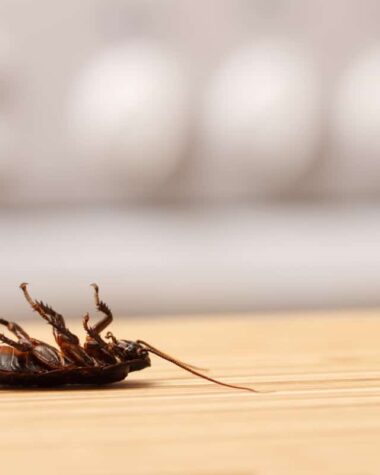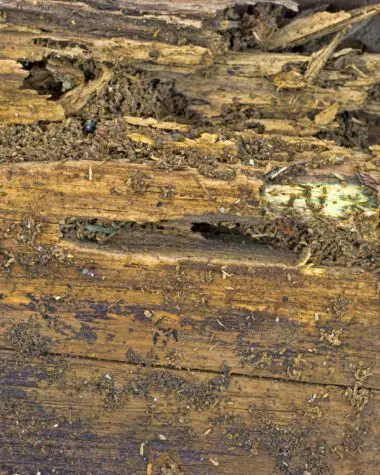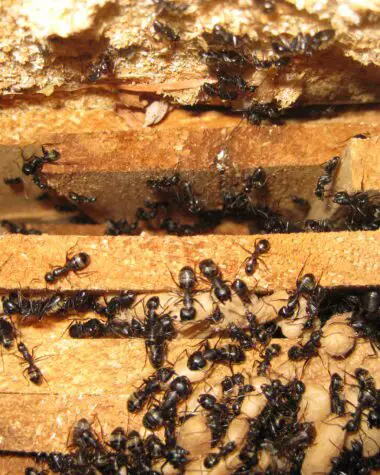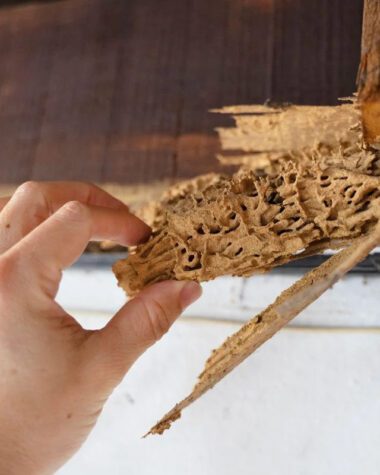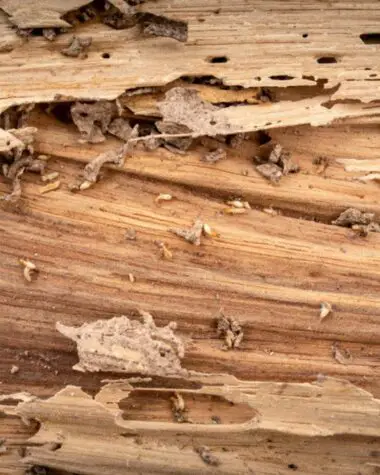Squirrels are quite abundant. They are almost everywhere outdoors and sometimes invade private properties. While their antics can be entertaining, they can also create havoc. These furry critters can damage property in several ways, especially wooden decks.
Squirrels love to chew on wood because their teeth are continuously growing. They need to file their teeth, and chewing on wood helps them maintain dental health. But it’s no surprise that they do not have any consideration for your home.
If you give squirrels easy access to wood, they can damage your furniture. Also, squirrel chewing can make loud noises and can disturb your sleep. It may be difficult to keep squirrels completely away from your home. But, some useful measures can be taken to stop squirrels from chewing wood.
In this article, you will discover easy-to-follow guides when dealing with squirrels invading and chewing your wood structures.
How to Prevent Squirrel Invasion
Before we eliminate squirrels, we must first learn how to prevent them from entering our property. Here are useful tips to avoid squirrels from invading your home and prevent a possible infestation that can cause damage to your wood structure and furniture.
Find out how squirrels are entering your home
This method may be difficult, but it will certainly solve your problem. Try to locate gaps in your house or garden area where the squirrels are entering. Seal or close these gaps, holes, and cracks during your inspection to prevent squirrels from accessing your house.
Cut bushes and trees that extend 8 feet high
Squirrels can jump around 8 feet high. Use your hedge clippers to trim tree branches extending towards your house. This will prevent squirrels from gaining access to your house and keep them at bay.
Porcupine wire
Observe where the squirrels usually sit. Place porcupine wires over those areas. This will protect your ledges, and the squirrels cannot gnaw on wood.
Spread a tactile repellent
You can also apply a repellent where the squirrels sit and chew. The repellents are usually very thick and sticky materials. The squirrels surely wouldn’t want it to get stuck in their coat, and they will avoid that place.
Spray a taste deterrent
You can put some taste deterrents in the areas where the squirrel gnaws. This will make the wood taste very bad and prevent the squirrel from chewing in that area.
Apply roofing cement
Squirrels hate the taste of tar. You can apply some tar on the wood, which will surely keep the squirrels at bay.
Use some plants
Squirrels avoid certain bulbs and plants because they do not like the taste or smell of those. If you place these plants near the wood they like to chew, the squirrels may avoid these areas altogether. You can plant these bulbs to repel squirrels: Daffodils, Peppermint, Allium, etc.
How to Drive Away Squirrels
Before we learn about the various steps to stop squirrels from chewing wood, it will be helpful to learn about some effective squirrel repellents. These repellents are quite strong and can stop squirrels from destroying your wood.
Liquid and spray repellents
You can treat your furniture or the wood with a spray that keeps rodents away. This will protect not only your wood from squirrels but also from other animals.
Homemade repellents
Homemade repellents are quite effective in keeping rodents at a distance. These repellents can be made from simple kitchen ingredients and are easy to make. All you need is one cup of chili peppers and mix it with one gallon of water.
Cover the container and place it in the sun for a week. After a week, strain the mixture using a cheesecloth and pour the liquid into a spray bottle. Be careful and always wear a mask while making this mixture.
Garlic Spray
Garlic spray also works wonders. Garlic has a very strong odor, and the pungent smell will surely make the squirrel think twice before chewing on your wood. You can buy a jar of minced garlic and mix it with apple cider vinegar. Put the mixture in a jar or a spray bottle and apply it on the surfaces you want the squirrel to stay away from.
Mothballs
Another effective homemade repellent is to place mothballs around the wooden area. You can also add dog or cat hair to make clumps as big as a grapefruit. Place them in the areas where the squirrels come. This repellent will release the scent of the cat or the dog and prevent the squirrels from coming.
How to Stop Squirrels From Chewing Wood
We have learned about the various ways to keep the squirrels away and the variety of repellents used to deter squirrels. Now, here is a step-by-step guide to stop squirrels from chewing wood. Do not worry because these steps are simple and doable, even for beginners.
Step 1
First, you must purchase a squirrel deterrent from your nearby local store. Look for a taste-repellent like red pepper or garlic. Carefully follow the manufacturer’s instructions and apply the repellent on the wooden surface or your deck. Repeat the process if necessary.
Step 2
Next, you must remove all bird feeders and food sources from the area around your deck. You might want to move all food items to the opposite side of your yard.
Step 3
Place other objects like dog bones, deer antlers, and soup bones around your yard. These will serve as an alternative to chewing wood, and the squirrels will be attracted to these objects.
Step 4
Furthermore, you can place a motion detector to make a sound when activated. This will scare the squirrel and will keep them away from your deck.
Step 5
Lastly, you can place a few mothballs in a wire-screened container or a mesh. Hang these containers on the deck railing, or scatter them around the perimeter. Squirrels do not like the smell of mothballs, which will deter them from coming.
To maintain effectiveness, you must replace the mothballs every three to four days. Make sure you constantly monitor your repellents, wood structures, and furniture to avoid any problems.
Conclusion
Squirrels can be your cute pet in the neighborhood, but they can cause quite problems, especially on your wooden structure and precious furniture. Luckily, you can implement preventive measures to avoid and repel these rodents away.
You can use chemical and natural repellents, such as mothballs, plants, and other DIY sprays. But still, the best thing to do is to properly maintain and monitor your property so the squirrels will never have access to your structure.
Wood infestation can be a headache once it worsens and causes much damage. The worst part is that it can be caused by many other biological factors, not just squirrels. Several wood-destroying insects and wood-decaying fungi can even invade your property and cause serious problems.
Luckily, there is still proper prevention, control, and treatment against these pests. Just make sure you follow the useful guides while observing proper safety, not just for your precious wood but also for you.
